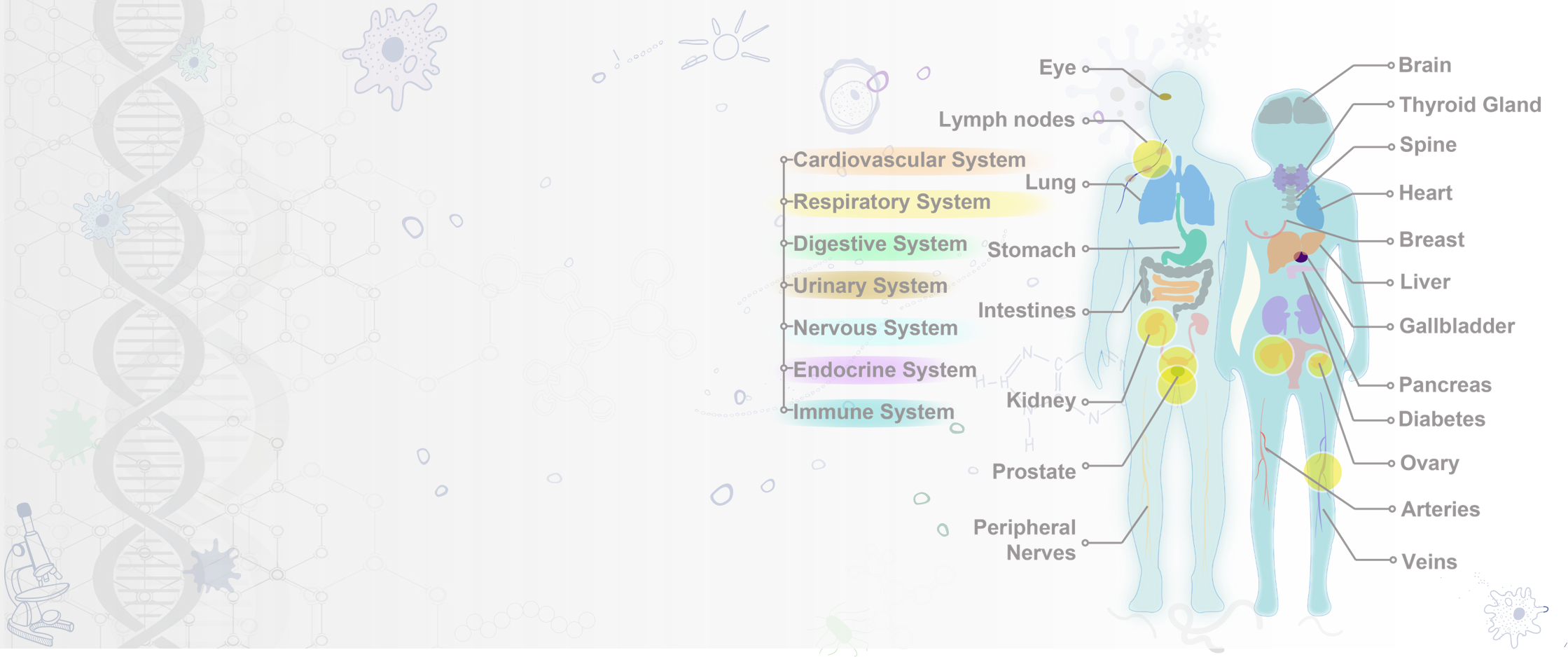Have you ever made some decision with your ‘gut feeling’ or felt ‘butterflies in your stomach” in some situations? Have you ever wondered what could be the underlying reasons for such emotions or cognitive behaviors? The answer behind such mysteries is hidden in the lining of our digestive system, which is connected with the central nervous system by a ‘gut-brain axis’. The gut-brain axis is a kind of bidirectional communication system by which the enteric and the nervous system are linked to each other and in turn influences mood, digestion, cognition and mental health. The connection between gut and the brain is via neurons and vagus nerve is one of the biggest nerves connecting the brain and gut which sends signals in both directions.
The axis network is not only anatomical but it extends to include endocrine system, hypothalamic-pituitary-adrenal axis (HPA), immune system, microbiota and its metabolites (short-chain fatty acids, branched chain amino acids, and peptidoglycans) as well. Since the axis is also influenced by gut microbiota, it is also aptly referred to as microbiota-gut-brain axis (GBA). So, what we eat can greatly affect our gut microbiota which in turn will affect the brain health also. Some of the foods which can boost our brain health by modulating the GBA include omega 3-fats, fermented foods and foods rich in fibers, polyphenols and tryptophan, etc. Interestingly, different psychobiotics (probiotics which provide positive psychiatric effects) have also been reported which include members of gram-positive Bifidobacterium and Lactobacillus families. So, fermented foods like sauerkraut, pickles and kefir have been reported to promote brain cell growth by improving levels of BDNF (brain derived neurotrophic factor) and immunity [1].
The cross-talks between the gut microbiota and brain has opened many avenues for effective control or treatment of neurodegenerative diseases like multiple sclerosis, Alzheimer’s disease, Parkinson’s disease and other neuropsychiatric disorders like anxiety, autism, bipolar disorders, schizophrenia, stress, eating disorders, and epilepsy [2]. In fact, Greek physician Hippocrates, who is often called as father of modern medicine had stated long back that “All disease begins in the gut” (460–c. 370 BCE). So, the current research studies are focused to understand the mechanisms of microbiota-gut-brain axis and their effect on homeostasis and disease states as well as to find out possible therapeutic solutions to overcome health related challenges or treat diseases. To facilitate such studies, manually curated databases like Amadis and gutMGene [3] have been developed in which the data generated using multi-omic approaches has been integrated in order to study the relationship between microbiota and human diseases in a convenient and effect manner. For instance, Amadis gives a platform to find out the possible associations between different bacterial genera and human diseases. It gives a complete list of possible microbial associations linked with different human physiological systems (see Figure 1). This database contains 20167 associations between 221 human diseases and 774 gut microbes across 17 species and the entire information has been curated from more than 1000 research articles [4].
|
Flora name |
Disease name |
Sample Type |
Omics |
Mechanisms |
Gene |
|
Actinobacteria |
Parkinson Disease |
Brain |
16S rRNA sequencing |
Diseases are affected by microbiota |
Hfe |
|
Alphaproteobacteria |
Parkinson Disease |
Brain |
16S rRNA sequencing |
Diseases are affected by microbiota |
Hfe |
|
Bacteroidetes |
Parkinson Disease |
Brain |
16S rRNA sequencing |
Diseases are affected by microbiota |
Hfe |
|
Betaproteobacteria |
Parkinson Disease |
Brain |
16S rRNA sequencing |
Diseases are affected by microbiota |
Hfe |
|
Erysipelotrichi |
Parkinson Disease |
Brain |
16S rRNA sequencing |
Diseases are affected by microbiota |
Hfe |
|
Verrucomicrobia |
Parkinson Disease |
Brain |
16S rRNA sequencing |
Diseases are affected by microbiota |
Hfe |
Result page which appears after we click on ‘brain’ and filter results for ‘Hfe’gene, it gives a complete list of bacterial flora associated with Parkinson Disease. Also, the information of underlying disease mechanism and gene associated (Hfe in this case) as well as the experimental ‘omic’ approach used to decipher the microbial association(s) is displayed on the results page. Picture credits-http://gift2disease.net/GIFTED
In this database, the details of query are also displayed, for example Hfe gene is down-regulated in Parkinson Disease and it impacts the expression of tyrosine hydroxylase in the substantia nigra. This database also features the disease network or possible associations of different bacterial flora with a specific disease (Figure 2) and also provides a microbiota network which displays the association of a specific bacterial genera with different diseases and the genes linked with them (not shown here).
Figure 2. Disease network, wherein the possible associations of different bacterial flora with Parkinson Disease are displayed and also involve Hfe gene.
To conclude, the “microbiota-gut-brain axis” can provide significant cues to understand the mechanism of gut microbes–diseases association and thus offers many solutions for the correct diagnosis as well as treatment of various human diseases.
References
- Sarkar A, Lehto SM, Harty S, Dinan TG, Cryan JF, Burnet PWJ. Psychobiotics and the Manipulation of Bacteria-Gut-Brain Signals. Trends Neurosci. 2016 Nov;39(11):763-781. doi: 10.1016/j.tins.2016.09.002. Epub 2016
- Rutsch, A., Kantsjö, J. B., & Ronchi, F. (2020). The Gut-Brain Axis: How Microbiota and Host Inflammasome Influence Brain Physiology and Pathology. In Frontiers in Immunology, Vol. 11. Frontiers Media SA.
- Liang Cheng, Changlu Qi, Haixiu Yang, Minke Lu, Yiting Cai, Tongze Fu, Jialiang Ren, Qu Jin, Xue Zhang, gutMGene: a comprehensive database for target genes of gut microbes and microbial metabolites, Nucleic Acids Research, Volume 50, Issue D1, 7 January 2022, Pages D795–D800
- Li, L., Jing, Q., Yan, S., Liu, X., Sun, Y., Zhu, D., Wang, D., Hao, C., & Xue, D. (2021). Amadis: A Comprehensive Database for Association Between Microbiota and Disease. In Frontiers in Physiology, Vol. 12. Frontiers Media SA.
